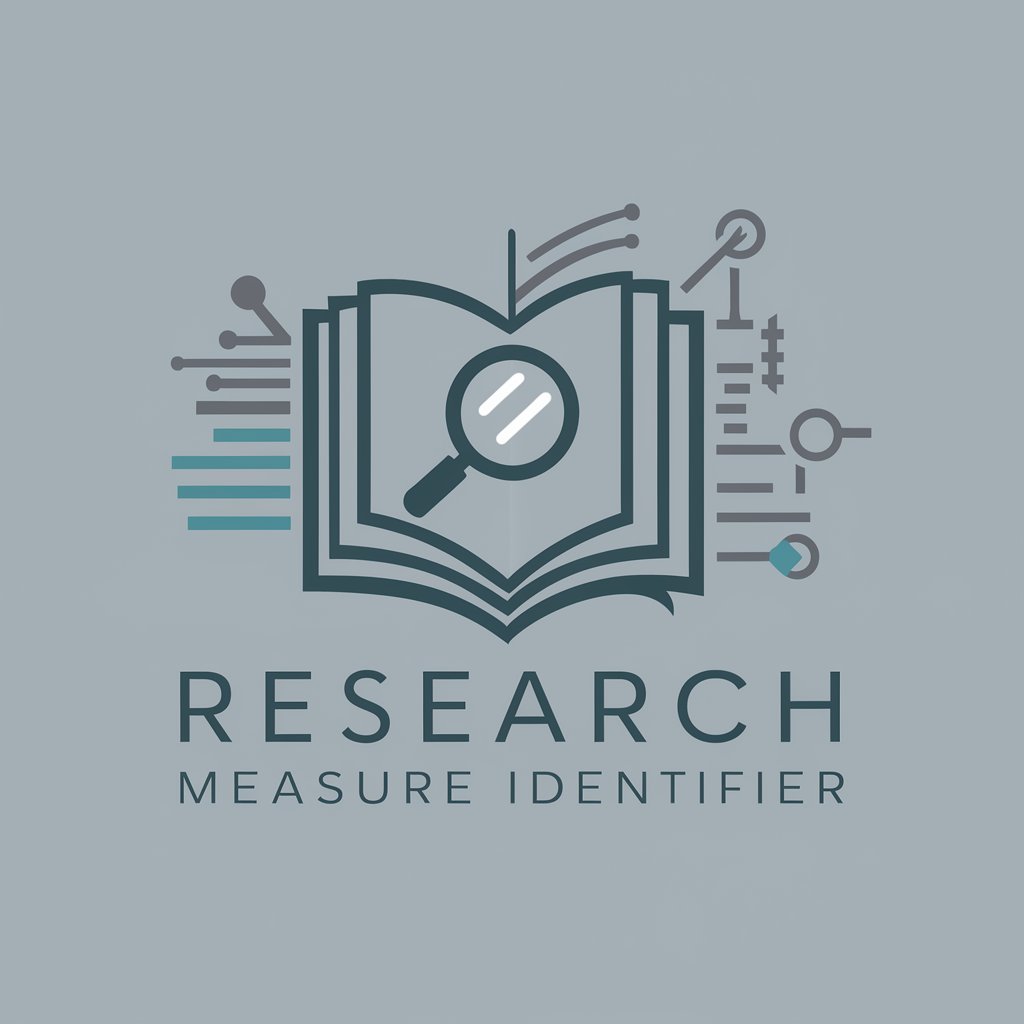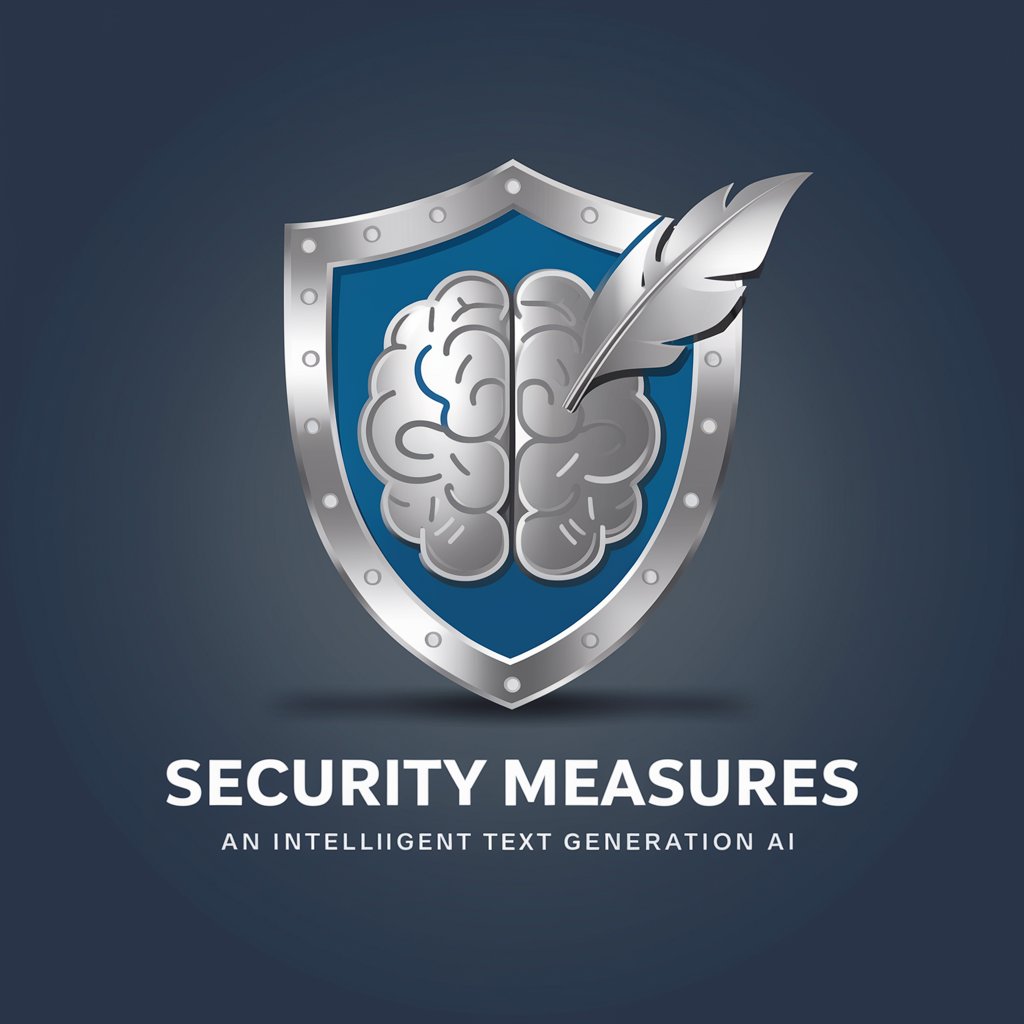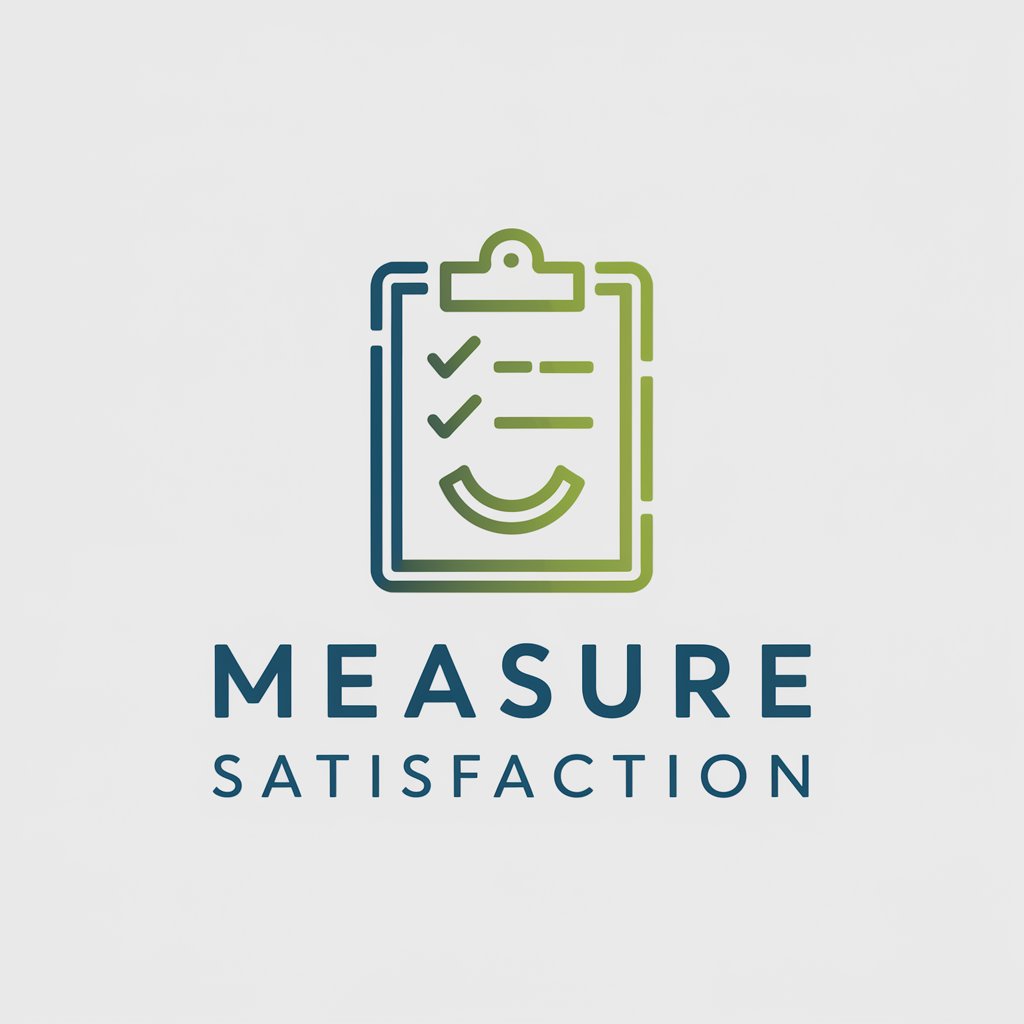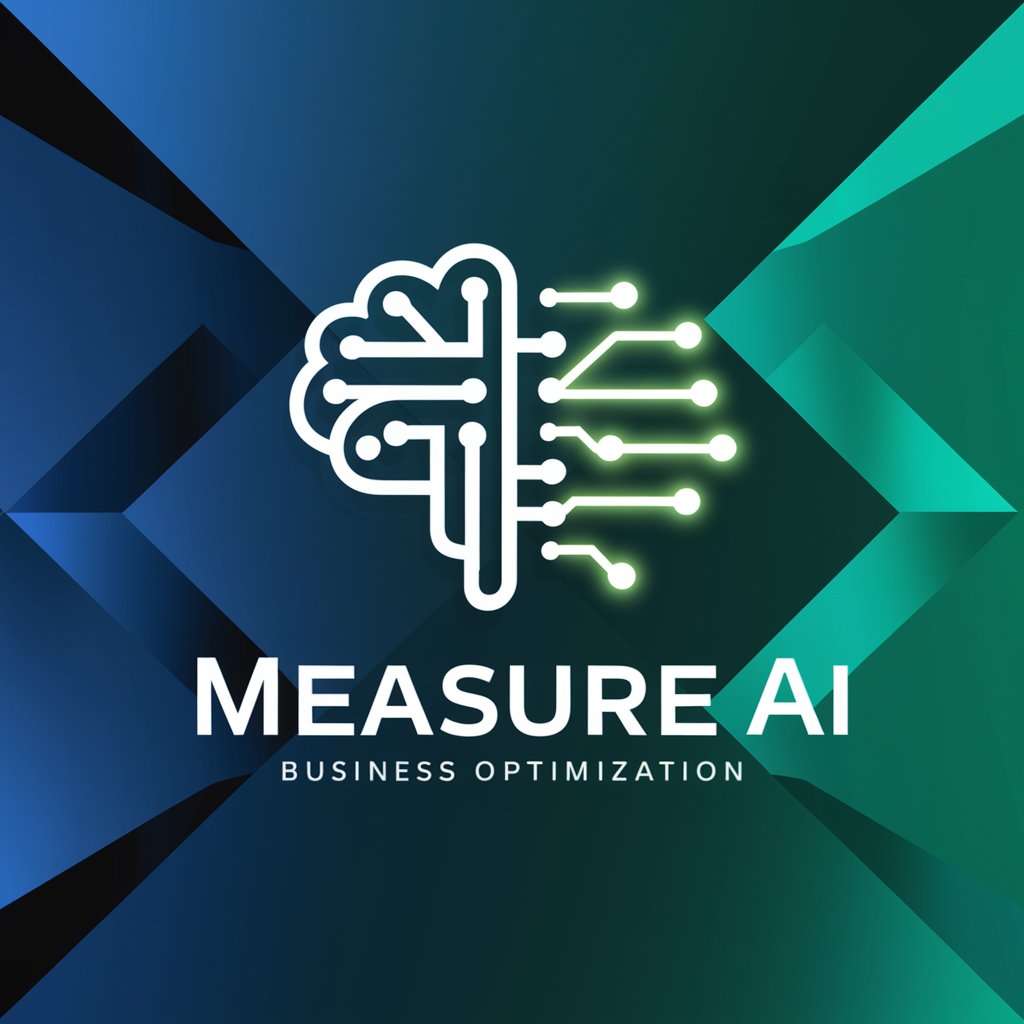Research Measure Identifier - Research Methodology Aid

Welcome! How can I assist you with your research measurements today?
Unravel research complexities with AI
Explain the difference between qualitative and quantitative research methodologies.
Identify and describe common scales used in psychological research.
Summarize the theoretical framework used in a given research paper.
What statistical tools are typically applied in sociological research analysis?
Get Embed Code
Overview of Research Measure Identifier
The Research Measure Identifier is a specialized tool designed to assist users in navigating the complexities of research methodologies, metrics, and tools across various academic and professional fields. It leverages advanced natural language processing (NLP) algorithms to scan, identify, and categorize research measures mentioned in papers and articles. These measures include scales, questionnaires, tests, and other measurement instruments used to collect or analyze data. Additionally, it provides summaries of these measures, links to access or download them, and integrates with academic databases for comprehensive coverage. For example, when analyzing a paper on psychological resilience, it can identify the Connor-Davidson Resilience Scale (CD-RISC), categorize it under psychological assessment tools, and provide a summary and access link. This example illustrates the tool's ability to make research concepts accessible, offering valuable insights into the measures used and facilitating further exploration or application. Powered by ChatGPT-4o。

Core Functions of Research Measure Identifier
Identification of Measures
Example
In a study on job satisfaction, the tool identifies the use of the Job Satisfaction Survey (JSS) by scanning the document.
Scenario
Researchers preparing a literature review on job satisfaction can quickly understand which measures are commonly used in this area, aiding in the selection of appropriate tools for their own research.
Categorization and Summarization
Example
It categorizes the Beck Depression Inventory (BDI) as a psychological measure and provides a brief summary, including its use for measuring the severity of depression.
Scenario
Students studying psychology can find concise information on various measures, making it easier to choose a suitable instrument for their thesis projects.
Link Retrieval and Download Assistance
Example
After identifying the General Self-Efficacy Scale, it provides direct links to websites or databases where the scale can be accessed or downloaded.
Scenario
Practitioners looking to implement a specific measure in their work can easily find and download the necessary tools, streamlining the process of data collection.
Database Integration
Example
Integrates with databases like PubMed and PsycINFO, offering access to a wide range of papers and the measures they discuss.
Scenario
Academic researchers can perform comprehensive searches for measures across multiple databases, enhancing the breadth of their literature reviews.
Analysis of Research Frameworks and Statistical Tools
Example
Identifies the conceptual framework, literature review, theoretical background, and statistical tools like SPSS or R used in a paper on educational attainment.
Scenario
Educational researchers can understand the frameworks and statistical analyses employed in similar studies, informing their methodological choices.
Target User Groups for Research Measure Identifier
Academic Researchers
This group benefits from the ability to quickly identify and compare research measures and methodologies used in existing literature, aiding in the selection of appropriate tools for their studies and ensuring their research design is robust and relevant.
Students
Students, especially those working on theses or dissertations, can utilize this tool to find relevant measures, understand their application, and access them for their research projects. This facilitates a deeper understanding of research methods and enhances their academic work.
Healthcare Professionals
Professionals in the healthcare sector can use this tool to identify and access measurement instruments for patient assessment, research, or program evaluation, ensuring they use evidence-based tools in their practice.
Market Researchers
Market researchers can benefit from identifying and analyzing measures used in consumer behavior studies, brand assessment, and other areas, allowing for more precise data collection and analysis in their projects.

How to Use Research Measure Identifier
1
Start by visiting yeschat.ai for a complimentary trial, no ChatGPT Plus required.
2
Upload or input the URL of the research paper you wish to analyze. Alternatively, manually enter study titles for analysis.
3
Specify the type of analysis you're interested in, such as identifying research measures, conceptual frameworks, or statistical tools used.
4
Review the analysis results, which include identified measures, categorizations, summaries, and links for further exploration.
5
Use the provided information for academic writing, research design, or methodology comparison. Tips: Enable JavaScript for a smoother experience and refer to the FAQ section for troubleshooting.
Try other advanced and practical GPTs
Vins sur Mesure
Elevate Your Dining with AI-Powered Wine Pairings

BrainyMentor IA : soutient éducatif sur-mesure
Empowering Education with AI

Security measures
Empowering Security with AI Insights

Measures
Empowering creativity with AI

Measure Customer Satisfaction
AI-powered insights into customer satisfaction

What the Measure
Your AI-Powered Cooking Companion

MEASURE AI
Optimizing Business with AI Power

Everflow Assistant GPT
Navigate Everflow effortlessly with AI

Mastermind of Measure Theory and Functional Analys
Unraveling Complexity with AI-Powered Analysis

Rate my Startup Idea
Turning startup dreams into playful memes.

GOD
Divine wisdom at your fingertips

God
Empower Your Creativity with AI

FAQs about Research Measure Identifier
What is Research Measure Identifier?
It's a specialized tool designed to help users navigate and understand various research methodologies and tools, making academic and professional research more accessible through advanced NLP algorithms.
Can I use Research Measure Identifier for literature reviews?
Yes, it's particularly useful for identifying, categorizing, and summarizing research measures within literature, aiding in the creation of comprehensive literature reviews.
How does it identify and categorize research measures?
The tool uses advanced NLP algorithms to scan research papers, identifying mentions of research measures, tools, or instruments, categorizing them by type, field of application, and constructs measured.
Is it possible to download the measures directly through the tool?
Yes, where available, Research Measure Identifier provides direct links to sources or databases for accessing or downloading the measures.
How can Research Measure Identifier improve my research methodology?
By providing detailed information on various measures, tools, and statistical methods, it helps in selecting the most appropriate methodologies for your research, ensuring accuracy and relevance.
